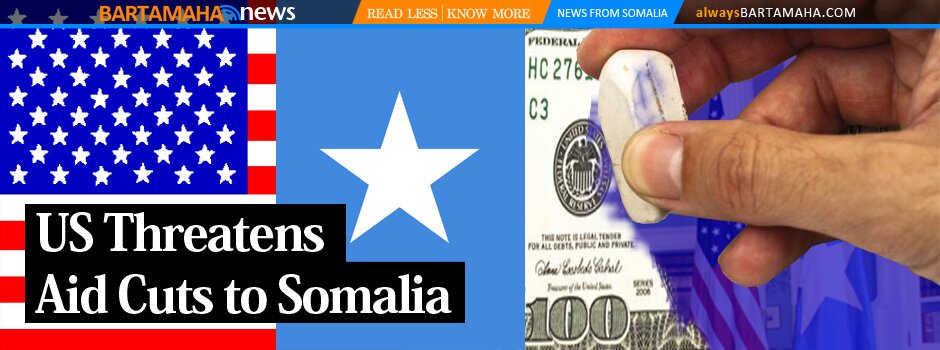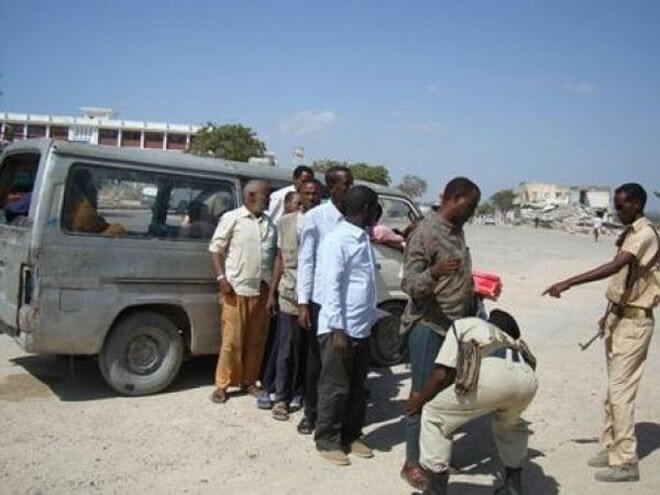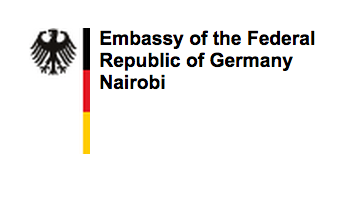Chasing the Somali piracy money trail
Â
 Piracy off the coast of Somalia has made many people very rich.
Piracy off the coast of Somalia has made many people very rich.
By Mary Harper (BBC NEWS) —Â A new economy has developed both within Somalia and further afield, as security companies, lawyers and negotiators reap huge profits from their involvement.
But finding out what happens to the money delivered as ransom payments is doubly difficult, first because piracy is a transnational crime, and second because Somalia is a country without rules, regulations or a functioning government.
There have been various reports that piracy in Somalia is attracting big-time criminals from all over the world; that it is being orchestrated from London; that the ship owners themselves are involved.
Â
But little evidence has been provided to back up these claims.
It has also been reported that much of the estimated $80m (£50m) paid out in ransoms so far this year has been laundered by organised syndicates in Dubai and other Gulf states.
Â

Andrew Mwangura
Seafarers’ Assistance Programme |
But this has been strenuously denied by officials in the Gulf, and people working in maritime intelligence say they have no real proof that the money laundering or any other large scale international crime is happening.
“There’s been a lot of inventive reporting on very slim evidence,” says Christopher Ledger, chairman of the maritime security company Idarat.
“What happens to the money is exceedingly opaque, partly because of the way Somalis communicate with each other, and also because of the impenetrable way their finance system works.”
Established security experts have also suggested that some of those cashing in on the new growth industry of Somali piracy are exaggerating its international criminal dimensions in order to drum up business for themselves.
The experts say that with a decreasing demand for private security and intelligence in places like Iraq, some companies and newly-formed “piracy consultants” are trying to sell Somalia as the new frontier for their operations, basing much of their information on speculation rather than fact.
In a sense, Somalis do not need to launder the money they make from piracy because their unique financial system operates on trust and honour, bypassing banks and other financial institutions.
Verbal transactions
As the system – known as “hawala” – often does not involve documentation, with most transactions done verbally, there is no paper trail.
Â

Islamist militias are also believed to be getting some of the ransom cash
|
This makes it almost impossible to find out what happens to money made from ransom payments or any other transaction in Somalia.
The fact that most ransoms are paid in cash means they simply disappear into the Somali community, rather than ending up in banks or other financial bodies.
Although hawala companies in the West and the Arab world have become more regulated in recent years, it is very difficult to track the money once it gets to Somalia.
It has been possible to find out something about how the ransom money is distributed.
One thing is clear: the small groups of pirates who take to sea in speedboats to hijack huge ships do not get all the money.
“They are the foot soldiers,” says Andrew Mwangura, who heads the East African Seafarers’ Assistance Programme and negotiates frequently with pirates.
“They are young men, often teenagers, and they certainly don’t end up with all the money.”
‘Compensation’ scheme
Pirates interviewed by the BBC have been reluctant to say exactly how much money they make from a successful hijacking, but reports indicate they make tens of thousands of dollars rather than millions.
This is because piracy has developed into a mini-economy, employing hundreds of people in north-eastern and central Somalia, all of whom need their share of the ransom.
Â

Â
Although there is no universal set of rules, a UN report based on information gathered from pirates based in the north-eastern village of Eyl, reveals some interesting information about how the ransom spoils are divided:
• Maritime militia, pirates involved in actual hijacking – 30%
• Ground militia (armed groups who control the territory where the pirates are based) – 10%
• Local community (elders and local officials) – 10%
• Financier – 20%
• Sponsor – 30%
The UN report found the payments are shared virtually equally between the maritime militia, although the first pirate to board the ship gets a double share or a vehicle.
And compensation is paid to the family of any pirate killed during the operation.
The breakdown shows how ransom money trickles down to many sections of Somali society.
Government officials and the armed groups that control different parts of the country all get their share too.
Yemen link
Some analysts – such as the Kenyan-based security consultant Bruno Schiemsky – say pirates have given as much as 50% of their revenue to the Islamist al-Shabab militia in the areas it controls.
However, al-Shabab has stated that it opposes piracy.
There have been consistent reports that officials in the semi-autonomous region of Puntland – the heartland of Somali piracy – have been getting cuts.
Â

Somalian civilians bear the brunt of the chaos eclipsing their failed state
|
Several officials, including a deputy chief of police, have been sacked for involvement in piracy.
With so many people receiving a share of the ransom payments – which average between $1m to $3m (£1.9m) – Graeme Gibbon-Brooks, of Dryad Maritime Intelligence, says Somali piracy is unlikely to attract the involvement of major international crime syndicates.
“When you look at the way ransoms are distributed, there’s simply not enough money for big time gangs to be interested,” he says.
However, if piracy continues to grow, there’s a possibility that it will start to attract major criminal elements.
Maritime security expert Christopher Ledger says: “It’s similar to the South American drugs trade in the 1970s, which started off as a relatively small-time operation, and grew into a huge global crime.”
One country that does seem to be involved in Somali piracy is Yemen.
Maritime security experts say the ‘mother ships’ from which pirate attacks are launched are often refuelled, resupplied and even armed in Yemen.
A UN report said: “Members of the Harardhere pirate group have been linked to the trafficking of arms from Yemen to (the Somali towns of) Harardhere and Hobyo, which have long been two of the main points of entry for arms shipments destined for armed opposition groups in Somalia and Ethiopia.”
It’s likely that the truth about all the money made from piracy will never be uncovered.
What is clear is that several elements in Somali society are benefiting, and that piracy will remain an attractive career option as long as the country remains without central authority.
But it is wrong to transfer theories about money laundering and international crime onto Somali piracy.
The problem is unique, the country is unique, and speculation will lead to misguided policies which are likely to prolong the dangers facing any ship that sails along the long unruly coast of Somalia.
Comments
comments
 Calendar
Calendar






































